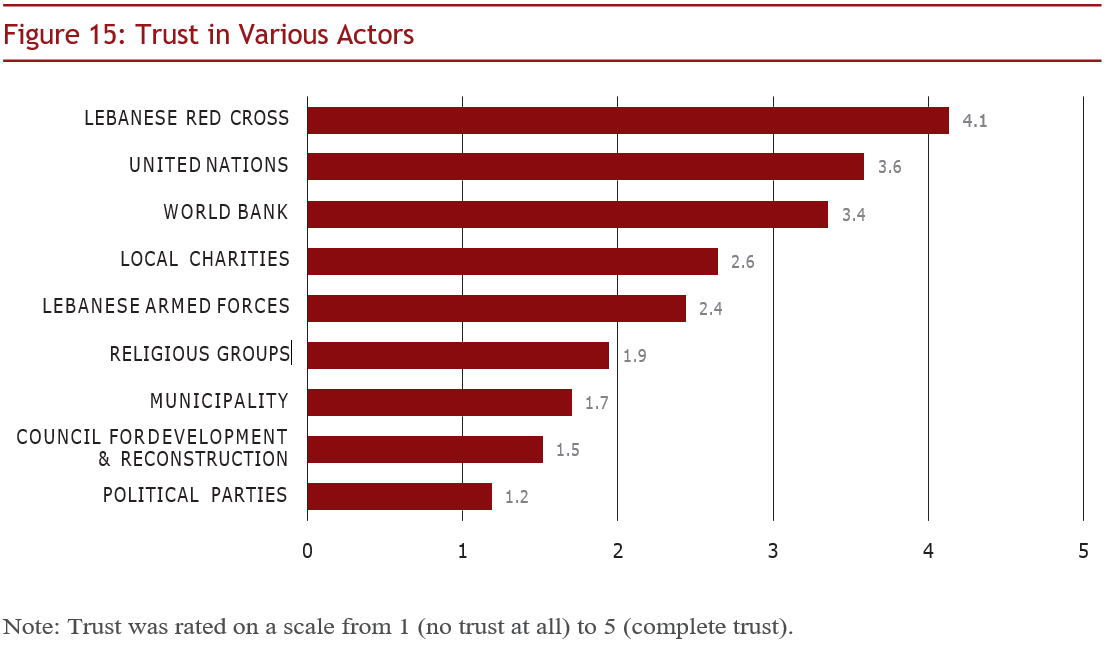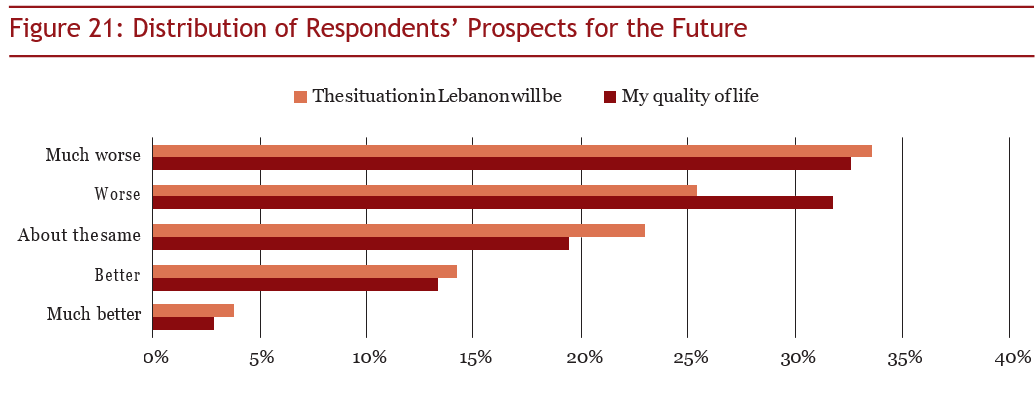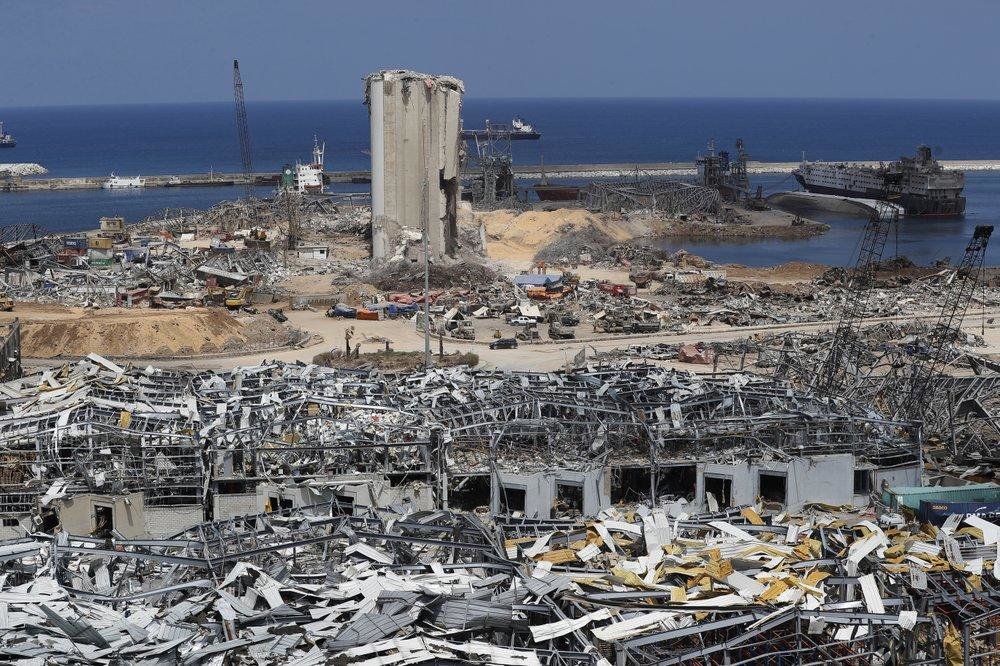
Lebanese are bracing themselves for even worse times ahead
Most Lebanese believe the situation in Lebanon and their quality of life will have worsened five years from now, according to a survey conducted by the World Bank.
The lack of confidence in institutions and in how resources meant for recovery will be spent are other revelations of the survey.
As the country faces up to a severe political, public health, and economic crisis, respondents overwhelmingly felt that money committed for recovery would not be spent transparently, equally, or fairly.
In all instances, less than 10 percent of those polled were very confident or extremely confident that the money would be spent well.
The results revealed that, on average, residents place more trust in the international community than local institutions.

Notably, among the local groups listed in the survey, political parties are reportedly not trusted at all, and religious groups seem to be losing the trust of the people.
More confidence is extended to local charities and the Lebanese Armed Forces while high levels of trust are accorded to the UN, and particularly the Lebanese Red Cross.
As confidence in local and state institutions remains low, policy responses should aim to increase transparency, inclusivity, monitoring, and opportunities, the survey said.
According to the poll, the main concerns of Lebanese were regarding exposure to Covid-19, security (personal and belongings), food prices, and healthcare.

Coronavirus cases rose to 53,568 cases as of Sunday while the country has seen dramatic increases in food prices recently due to soaring inflation.
The outlook of the Lebanese economic activity is projected to contract by 17.8 percent in 2020 compared to an earlier forecast of a contraction of 12 percent in the June, according to Bloomberg's quarterly survey of economists and analysts.
Lebanon was rocked on August 4 by an explosion at the port of Beirut which destroyed much of the port and severely damaged the dense residential and commercial areas within a one- to two- mile radius. The number of people injured from the blast has been estimated to be more than 6,500, while fatalities total more than 200.

Prior to the explosion, Lebanon was facing simultaneous crises - the spillover of the Syrian war, resulting in Lebanon hosting over 1.3 million Syrian refugees and straining deteriorating public services, an economic crisis leading to the Lebanese pound’s freefall on the black market losing more than 83 percent of its value since last October and inflation hitting a record high of 120 percent by August 2020, and banks restricting the amount that residents could withdraw from their accounts as well as the ongoing coronavirus pandemic.
The Bloomberg poll of analysts, which took place in September, estimated Lebanon's average inflation rate at 59.2 percent in 2020 compared to a projection of 22 percent in a previous survey.
Analysts also projected Lebanon's fiscal deficit at 11.6 percent of GDP in 2020.











